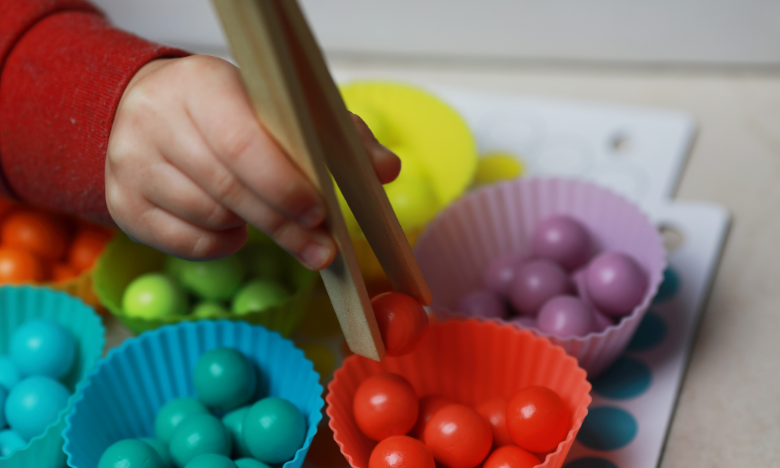
From Grasping to Drawing: Fine Motor Milestones
Fine Motor Milestone: Definition
Fine motor milestones refer to the development of small muscle movements, particularly in the hands and fingers, that allow a child to perform tasks like grasping, holding, buttoning, or writing. These milestones are part of overall child development and are essential for daily life activities and learning.
Why is Fine Motor Milestone Important?
 Independence in daily tasks: Fine motor skills help children do things like feeding themselves, dressing, and grooming.
Independence in daily tasks: Fine motor skills help children do things like feeding themselves, dressing, and grooming.
 Academic readiness: Skills like writing, drawing, and cutting are critical for school activities.
Academic readiness: Skills like writing, drawing, and cutting are critical for school activities.
 Cognitive development: Handling small objects and performing detailed tasks improves problem-solving and hand-eye coordination.
Cognitive development: Handling small objects and performing detailed tasks improves problem-solving and hand-eye coordination.
 Self-confidence: Mastery of small tasks boosts self-esteem and encourages participation in group activities.
Self-confidence: Mastery of small tasks boosts self-esteem and encourages participation in group activities.
Tips to Encourage Fine Motor Development
♦ Play with toys like stacking blocks, nesting cups, shape sorters, and puzzles.
♦ Arts and crafts: Encourage scribbling, coloring, tearing paper, and finger painting.
♦ Daily routines: Let the child practice buttoning, using a spoon, brushing teeth, or opening boxes.
♦ Use safe tools: Introduce child-safe scissors, tongs, or tweezers to improve grip and control.
♦ Encourage finger play games: Like “Itsy Bitsy Spider” or puppet play.
♦ Provide different textures and objects: Sand, clay, sponges, etc., to enhance tactile input.
♦ When to Seek Help
You should consider consulting a pediatrician or occupational therapist if:
•By 6 months: Baby doesn't reach for or grasp objects.
•By 12 months: Difficulty using fingers or transferring objects between hands.
•By 18 months: Trouble picking up small items (e.g., crumbs) using fingers.
•By 2 years: Cannot stack blocks or hold a crayon.
Any age: Significant hand tremors, extremely floppy or stiff hands, or disinterest in hand use.
Early intervention is key to supporting development and minimizing delays.
 Conclusion
Conclusion
Fine motor development is a critical aspect of early childhood growth. It impacts a child's ability to perform everyday tasks and supports their cognitive and academic progress. Recognizing milestones and encouraging appropriate activities at each age can foster development. If delays are noticed, early support and intervention can make a significant difference in the child’s overall progress and confidence.
Back to Blogs
